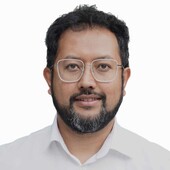
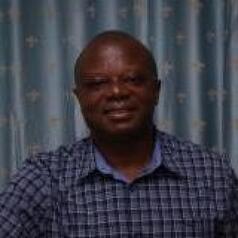
Mawuli Dzodzomenyo
Associate Professor in Infectious Diseases (School of Public Health), University of Ghana
Professor Dzodzomenyo's research focuses on the genetic basis of infectious diseases particularly polymorphisms in genes encoding for molecules and enzymes and their association with severity of diseases with emphasis on malaria and other vector-borne diseases.
He also works on assessing morbidity and mortality due to common parasites such as malaria, schistosomiasis, lymphatic filariasis and other geohelminths in endemic populations in developing countries and the design of appropriate interventions to promote health, with a particular focus on children. Prof Dzodzomenyo's work also includes genotyping using genetic markers to reveal the presence of mutations for assessing resistance to drugs. More recently, his work has also focused on determining occupational health risks among waste handlers and community members with a focus on helminth infections and other bacterial infections in peri-urban environments.
Prof Dzodzomenyo also works currently on climate change adaptation to health issues and assessing health workforce capacity in delivering healthcare in developing countries.
Prof Dzodzomenyo teaches Microbiology, Environmental Health and Sanitation, Global Climate Change and Health Effects, Health Aspects of Housing and Emerging and Re-emerging Diseases of Global Health Significance, among many other courses.
Less ![]()
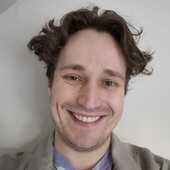
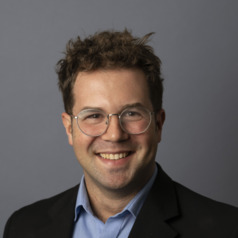
Max Chapnick
Postdoctoral Teaching Associate in English, Northeastern University
Max Chapnick recently defended his dissertation “Wild Science: Radical Politics and Rejected Knowledge in Nineteenth-Century Fiction” at Boston University. Before that he earned a B.S. in Physics, studied creative writing on a Fulbright scholarship, and worked in communications for the non-profit GiveDirectly.
He has taught courses on first-year writing, environmental literature, science fiction, and the political history of Boston.
Less ![]()
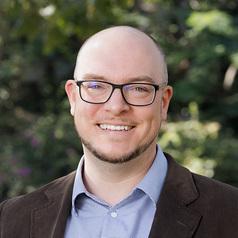
Max Grömping
Senior Lecturer, Griffith University
Max Grömping is a Senior Lecturer at the School of Government and International Relations at Griffith University. He studies how citizens achieve policy change under different political regimes, and the conditions under which citizens gain or lose trust in political institutions. His research is published in scholarly journals such as Political Communication, Governance, Policy Sciences, or PNAS. His book “Lobbying the Autocrat“, co-edited with Jessica C. Teets, is published with University of Michigan Press. Currently, Max co-leads two Australian Research Council-funded Discovery Projects on "Public Interest Advocacy in Australian Policymaking", and on "Mapping & Harnessing Public Mistrust". He is also Associate Editor of the journal Democratization, an invited affiliate of the International Panel on the Information Environment (IPIE), and member of the Electoral Integrity Project‘s International Advisory Board. --- Twitter: @MaxGroemping
Less ![]()
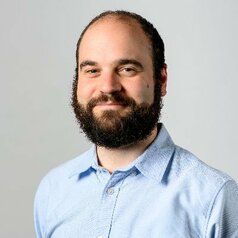
Max Kaiser
Adjunct lecturer, The University of Melbourne
Dr Max Kaiser is the author of Jewish Antifascism and the False Promise of Settler Colonialism (Palgrave, 2022).
His research on Jewish antifascism is also published in Transnational Voices of Australia's Migrant and Minority Press edited by Catherine Dewhirst and Richard Scully (Palgrave 2020), The New Theatre edited by Lisa Milner (Interventions, 2022), Labour History, Fascism. Journal of Comparative Fascist Studies, and the Journal of Modern Jewish Studies.
Other writing has been published in Overland and Jacobin magazines.
Less ![]()

Max Shepherd
Assistant Professor of Mechanical and Industrial Engineering and Physical Therapy and Rehabilitation, Northeastern University
Dr. Shepherd is an Assistant Professor with a joint appointment in Mechanical and Industrial Engineering, and Physical Therapy and Rehabilitation. Prior to coming to Northeastern, Dr. Shepherd did his PhD in Biomedical Engineering at Northwestern University while performing his research at the Shirley Ryan AbilityLab, and was a Postdoctoral researcher at Georgia Tech. He has previously worked at X (formerly Google X) and was a visiting scholar at Ossur, an Icelandic prosthetics manufacturer. Dr. Shepherd’s research seeks to improve the individualized design and control of robotic prosthetics and exoskeletons for people with mobility impairments. His research spans gait biomechanics, machine learning, robotics, mechatronic design, and human motor control and perception.
Less ![]()
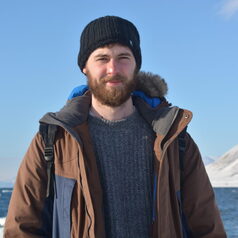
Max Thomas
Senior Research Fellow, University of Otago
My research interests are in the physical and biogeochemical processes in sea-ice and I am part of the aligned modelling project with the Deep South National Science Challenge.
Less ![]()
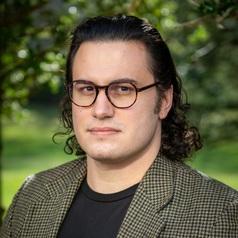
Max Weselowski
Doctoral student, College of Interdisciplinary Studies, Royal Roads University
Max is a student in the Doctorate of Social Sciences program at Royal Roads University. His area of research is on addiction stigma.
Max is also the Executive Director of InnerVisions Recovery Society & Hannah House, a non-profit bed-based treatment service for people seeking help with addictions.
Less ![]()
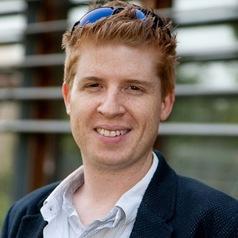
Max L Wilson
Associate Professor of Human-Computer Interaction, University of Nottingham
Max L. Wilson is an Associate Professor of Human-Computer Interaction, in the Mixed Reality Lab, and Director of Student Experience in the School of Computer Science. His EPSRC, European, and Google funded research is focused on the use of fNIRS brain data, about mental workload and other cognitive activity, as a form of personal data, that can be used to evaluate technology and work tasks.
This work has emerged from his earlier research on the evaluation of user interfaces for interacting with information. Max is on the steering committees of both ACM CHI and ACM CHIIR conferences, as well as a member of the SIGCHI Conferences Working Group, and a Deputy Editor at the International Journal of Human-Computer Studies.
Less ![]()

Max William Loomes
Senior Researcher, UNSW Sydney
Max Loomes is a researcher and psychologist based out of Sydney, Australia. He currently conducts research at the University of New South Wales at the School of Psychiatry and Mental Health. Previously he has worked at other academic and medical institutions, such as the School of Psychology and Brain and Mind Centre at the University of Sydney, and St Vincent's Hospital Homeless Health Service. Max has a strong focus on social justice and mental health.
Less ![]()
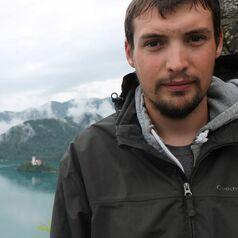
Maxence Soubeyrand
Doctorant en écologie forestière, Université du Québec en Abitibi-Témiscamingue (UQAT)
Je suis doctorant à l'Université du Québec en Abitibi-Témiscamingue à Rouyn-Noranda. J'ai acquis une double compétence en écologie et en modélisation tout au long de mon cursus universitaire. Mes domaines d'expertise incluent l'écologie forestière, la modélisation de la succession forestière et l'analyse de données.
Less ![]()
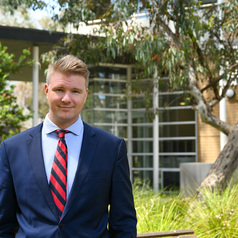
Maxfield Peterson
Postdoctoral Research Fellow, Australian National University
Mas is currently a postdoctoral research fellow at the School of Regulation and Global Governance at Australian National University. Max received his Ph.D in Political Science from the University of Pittsburgh in 2022. His work has been published in The Review of International Political Economy, the SAGE Handbook of Research Methods, Political Studies Review, and is forthcoming in The Handbook of Bureaucratic Autonomy: Politics, Resources, Power. (B. Guy Peters, Ed. Edward Elgar Publishing Ltd.)
Less ![]()
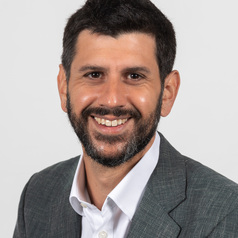
Maxim Bolt
Associate Professor of Development Studies, University of Oxford
Maxim Bolt is also a research associate at the Wits Institute for Social and Economic Research (WISER), University of the Witwatersrand. He is an anthropologist working largely on questions of economy in southern Africa.
Maxim's earlier research was on South Africa’s border with Zimbabwe, between 2006 and 2008, during acute economic and political troubles in Zimbabwe. It focused on the border farms, their black workforces and their white landowners in this context of crisis, upheaval and displacement. The monograph that emerged from this research - Zimbabwe's Migrants and South Africa's Border Farms: The Roots of Impermanence (Cambridge University Press and Wits University Press) - won the 2016 British Sociological Association / BBC Thinking Allowed Ethnography Award.
Maxim now researches property inheritance, the state and class reproduction in Johannesburg, South Africa. In the post-apartheid era, making wills has taken on new significance amidst middle-class expansion and the rapid proliferation of financial services. Meanwhile, most people die intestate, their relatives confronted with unfamiliar rules about which relatives officially matter. The project explores the institutions and disputes surrounding urban inheritance, connecting socio-economic position to kinship, property, and legal and bureaucratic processes. As more South Africans accumulate substantial property, its disbursement becomes a new terrain on which battles of kinship obligation are fought.
Less ![]()
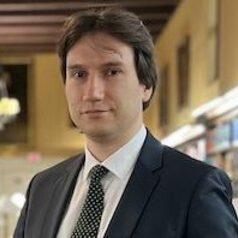
Maxim Krupskiy
Visiting scholar, Russia and Eurasia Program, Tufts University
Maxim Krupskiy, a human rights defender and attorney, joined The Fletcher School of Law and Diplomacy for the Spring 2023 semester as a visiting scholar of the Russia and Eurasia Program. Krupskiy has 12 years of legal experience in Russia. Throughout his legal career, his work has primarily revolved around defending refugees, NGOs, and activists labeled as foreign agents by Russia.
In addition to his work as an attorney, Krupskiy has also prepared over 40 expert opinion briefs on anti-corruption related to migration, state administration, the environment, and legislation in relation to non-profit organizations. Many of these opinions have been utilized by NGOs such as the Human Rights Centre Memorial, Greenpeace, and the World Wildlife Fund, among others. As a current Ph.D. candidate, his research focuses on the role of NGOs and civic activism in establishing social connections that are resistant to challenges arising from modernity.
Less ![]()

Maxime Cornet
Doctorant en sociologie de l'IA, Télécom Paris – Institut Mines-Télécom
Sociologie du travail, Sociologie du numérique, Sociologie de l'IA
Less ![]()
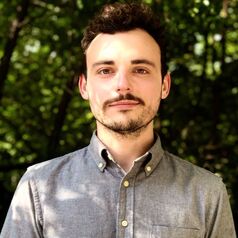
Maxime Gelly-Perbellini
Doctorant en histoire du Moyen Âge, École des Hautes Études en Sciences Sociales (EHESS)
Maxime Gelly-Perbellini est doctorant en histoire médiévale à l'École des Hautes Études en Sciences Sociales (EHESS, Paris) et à l'Université libre de Bruxelles (ULB). Ses recherches portent sur la répression de la sorcellerie dans le royaume de France à la fin du Moyen Age (XIV-XVe siècle). Il a également été attaché temporaire d'enseignement et de recherche à l'Université de Reims Champagne-Ardenne.
Less ![]()
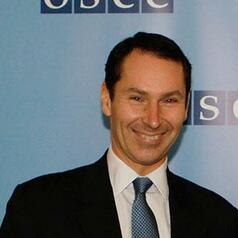
Maxime Lefebvre
Affiliate professor, ESCP Business School
Maxime Lefebvre est diplomate et docteur en science politique. Il est diplômé de l'École des hautes études commerciales de Paris (1989) puis de Sciences Po Paris (1990) et a fait une maîtrise d'histoire à l'Université de Sorbonne Paris IV (1990). Diplomate, ancien ambassadeur, il est actuellement professeur à l’ESCP, et auteur de La politique étrangère européenne (« Que sais-je ? », 2021) et La politique étrangère de la France (« Que sais-je ? », 2019). Les propos des articles publiés sur ce site sont tenus à titre personnel.
Less ![]()
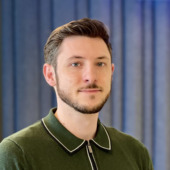
Maxime Massey
Docteur en Sciences de Gestion & Innovation - Chercheur affilié à la Chaire Improbable, ESCP Business School
Less ![]()

Maxime Paré
Professeur chercheur en agriculture nordique, Université du Québec à Chicoutimi (UQAC)
Agriculture nordique; science du sol; écologie du sol
Less ![]()
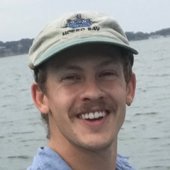

Maximilian Bruder
PhD Research Fellow, Maastricht Economic and Social Research Institute on Innovation and Technology (UNU-MERIT), United Nations University
I am currently enrolled as a PhD fellow at the United Nations University - MERIT, in Maastricht Netherlands. I research on the subjects of innovation diffusion in poverty context and private sector sustainability.
Less ![]()

Maximilian Dröllner
Research associate, Curtin University
I am a Research Associate at the School of Earth and Planetary Sciences at Curtin University and part of the Timescales of Mineral Systems Group. My focus is on using state-of-the-art geochemical, mineralogical, and geochronological analytical tools to understand the main drivers shaping our beloved planet. My work covers a diverse suite of geoscientific research questions, ranging from the study of fundamental processes active during early Earth, to more recent earth surface processes and associated climatic changes.
Less ![]()
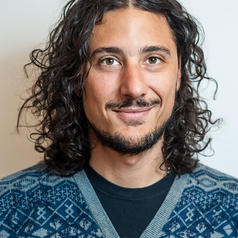
Maximiliano Udenio
Associate Professor of Supply Chain Management, KU Leuven
I’m an associate professor of supply chain management based in Leuven, Belgium. My expertise is in empirical and theoretical modeling of different aspects in which firms (should) behave in light of optimizing their performance. I’m particularly interested in deriving insights related to the way in which firms can improve their sustainability.
Less ![]()
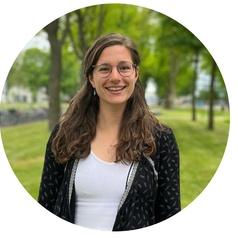
Maximilienne Toetie Allaart
Postdoctoral Researcher in Gut Microbiome Research, University of Tübingen
My academic work delves into the fascinating world of microbes, those tiny chemists that, despite their invisibility, have a profound impact on life on Earth. During my PhD, I concentrated on harnessing individual or groups of microbes to transform toxic waste gases into valuable products. I approach this by metaphorically stepping into the microbes' shoes, aiming to understand their motivations and applying this knowledge to optimize industrial biotechnological processes. Since December 2023, I’ve shifted my focus to the human gut microbiome, exploring the complex interplay between these microbes and human health. With more microbial cells in our bodies than human cells, understanding their specific roles in maintaining health or contributing to disease is crucial. My current research is dedicated to unraveling fundamental questions in this field by taking the microbial perspective.
Less ![]()
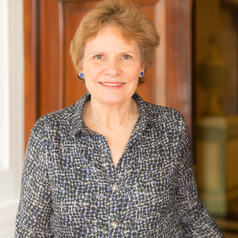
Maxine Berg
Professor of History, University of Warwick
Research Interests:
Global history, especially Asia and Europe in the early modern period; history of knowledge and technology; history of material culture, especially textiles, porcelain and luxury manufactured goods; also history writing and historiography 1920s - 1960s.
'Eurasian Trade and European Markets 1600-1830.’ This is a study of Asian export ware produced for and traded in the consumer markets of Europe and the Atlantic world. How did East India Companies, private traders and Indian and Chinese merchants design goods of wide appeal to Western markets, and organize their production and distribution systems in this long-distance trade in material goods and culture between Asia and Europe? How were these Asian-produced goods collected and displayed in European and American public and private interiors? What part did this Eurasian trade play in stimulating Europe’s consumer and industrial revolutions?
Wealth and Knowledge: the Transmission of Useful Knowledge 1600-1850’. A study of how craft, tacit and formal knowledge was transmitted among manufacturers, especially in luxury goods across Europe and between Europe and Asia.
International historical associations in the postwar era.
I am a member of GEHN (the Global Economic History Network). See Gehn (LSE)
Less ![]()

Maxine Calle
Ph.D. Candidate in Mathematics, University of Pennsylvania
Maxine Elena Calle is a Ph.D. candidate in Mathematics at the University of Pennsylvania, a 2020 NSF Graduate Research Fellow, and a 2023 Dean's Scholar. Hailing from a small beach town in San Diego, CA, she received her B.A. from Reed College in Portland, OR, graduating Phi Beta Kappa. Her research in abstract mathematics focuses on algebraic topology and homotopy theory. Maxine is also committed to creating a more inclusive, diverse, and anti-racist mathematical community, in which any person who wants to be a mathematician, can. To balance her academic life, she enjoys making art, playing music, and hanging out with her two cats, Job and Guppy.
Less ![]()
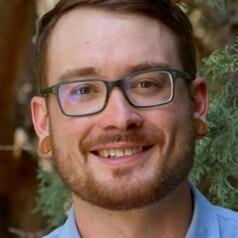
Maxwell Cook
Ph.D. Student, Dept. of Geography, University of Colorado Boulder
Max Cook is a graduate student working with Dr. Jennifer Balch in the Department of Geography. His work focuses on the social and ecological impacts of wildfires in the western United States. Specifically, he is interested in using "Big Data", including remote sensing, to understand the impacts of extreme fires and identify possible mitigation strategies for create fire-resilient communities. Max received his BS from Colorado State University in the Department of Forest and Rangeland Stewardship in Natural Resource Management and GIS. He has spent 5 years working with The Nature Conservancy in Colorado and Utah as a Geospatial Analyst, where he continues to work on applied conservation issues. In his free time, he is an avid angler, biker, and backcountry skier.
Less ![]()
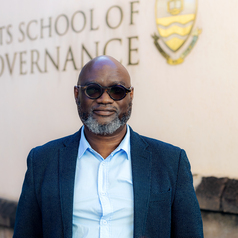
Maxwell Maseko
Postdoc Research Fellow - Digital Governance and Media, University of the Witwatersrand
My name is Dr Maxwell M. Maseko. I hold a PhD in public administration from the University of the Western Cape and have 26 years of experience working as a journalist in various news media organisations in South Africa. I am currently a postdoctoral fellow at the newly established Tayarisha Centre at the Wits School of Government. The centre conducts academically rigorous, cutting-edge research on the challenges and opportunities presented by digitalisation, especially in the public sector. My research interests lie in the fields of media and governance, particularly in areas of democracy, digitalisation in the public sector, protests, and citizen participation. I am interested in researching new methods of governance, innovation, politics, and protest.
Less ![]()

Maxwell Palmer
Assistant Professor of Political Science, Boston University
I am an Assistant Professor in the Department of Political Science at Boston University and a Junior Faculty Fellow at the Hariri Institute for Computing. I received my Ph.D. in political science from Harvard University in 2014.
I study American political institutions, including Congress, the judiciary, electoral institutions, and local political institutions. I am particularly interested in how rules shape individual decision making and on the effects of political time on institutional outcomes. My work has appeared in the American Political Science Review, the Journal of Politics, and the Journal of Empirical Legal Studies. My current research focuses on the returns to office for former politicians, local politics and institutions, and methods for analyzing redistricting plans and gerrymandering.
Less ![]()

Maya Defianty
Dosen di Fakultas Ilmu Pendidikan dan Tarbiyah (FITK), UIN Syarif Hidayatullah, Jakarta, Universitas Islam Negeri Syarif Hidayatullah Jakarta
Less ![]()
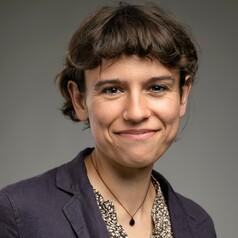
Maya Goldman
Resesarcher, SALDRU, University of Cape Town
Maya is a researcher and consultant working on inequality, poverty and fiscal policy. Her expertise is in distributional analysis, and she also enjoys more conceptual, and ethnographic style research. She currently works both for academic institutes like the Southern African Labour and Development Research Unit at the University of Cape Town and International Organisations like the World Bank's Equity Poverty Lab and the Global Development Network. She has a Masters in Economics (Public Policy and Development) from Toulouse School of Economics and was awarded an ODI Fellowship, during which she
worked in the governments of East Timor and Burundi.
Less ![]()

Maya Panisset
Senior Research Fellow, The University of Melbourne
Dr. Maya Panisset (she/they) is a clinician researcher (physiotherapist) with a PhD in Neuroscience from the University of Melbourne, specialising in neurorehabilitation, co-design and digital health. They have a passion for person-centred care and early intervention for people with neurological conditions. With a special interest in mobility, balance and falls prevention, Dr. Panisset was substantially involved in the development and conduct of an inaugural community-based trial of group-based exercise and social program for older adults at risk of falls utilising specially designed Seniors Exercise Parks, of which there are now fourteen parks installed in greater Melbourne and interstate.
Dr. Panisset specialises in the study of novel neuromodulation techniques to enhance neurorehabilitation, including the PONsTM device for translingual neuromodulation. As a Senior Research Fellow in the Dept. of Medicine (RMH), they currently coordinate a global-first early adaptive trial of transcutaneous spinal cord neuromodulation (TESCoN) led by Prof. Mary Galea to restore upper limb function in people living with tetraplegia, funded by the MRFF and TAC, and located within the Victorian Spinal Cord Service at the Royal Talbot Spinal Rehabilitation Centre.
The research team is also exploring the application of innovative non-linear metrics for walking and standing balance, utilizing inertial sensors (IMUs) in collaboration with the MS Immunology Centre at the Royal Melbourne Hospital. The ultimate goal is to create a mobile health tool that empowers individuals with MS to remotely monitor their condition, facilitating early detection of deterioration and ensuring timely access to preventative interventions. This is especially crucial given the absence of a cure for MS.
Less ![]()
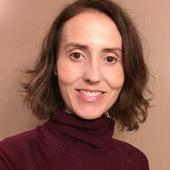
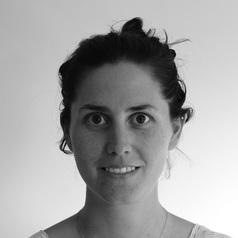
Maya Pasgaard
Adjunct assistant professor, Aarhus University
RESEARCH AREAS:
Integrated conservation and development projects in the Global South
Sociopolitical dimensions of Reduced Emissions from Deforestation and forest Degradation
Policy discourses concerning ‘equity’, ‘efficiency’, ‘effectiveness’ and ‘local community’
Actor networks and the multidirectional translation of policy and outcomes
Meso-level experts: conservation and development practitioners, community representatives;
Distribution, production and exchange of scientific knowledge, in particular on climate change
Securitization, expertise and the shifting governance of Ecosystem Services
Less ![]()
- Market Data





















